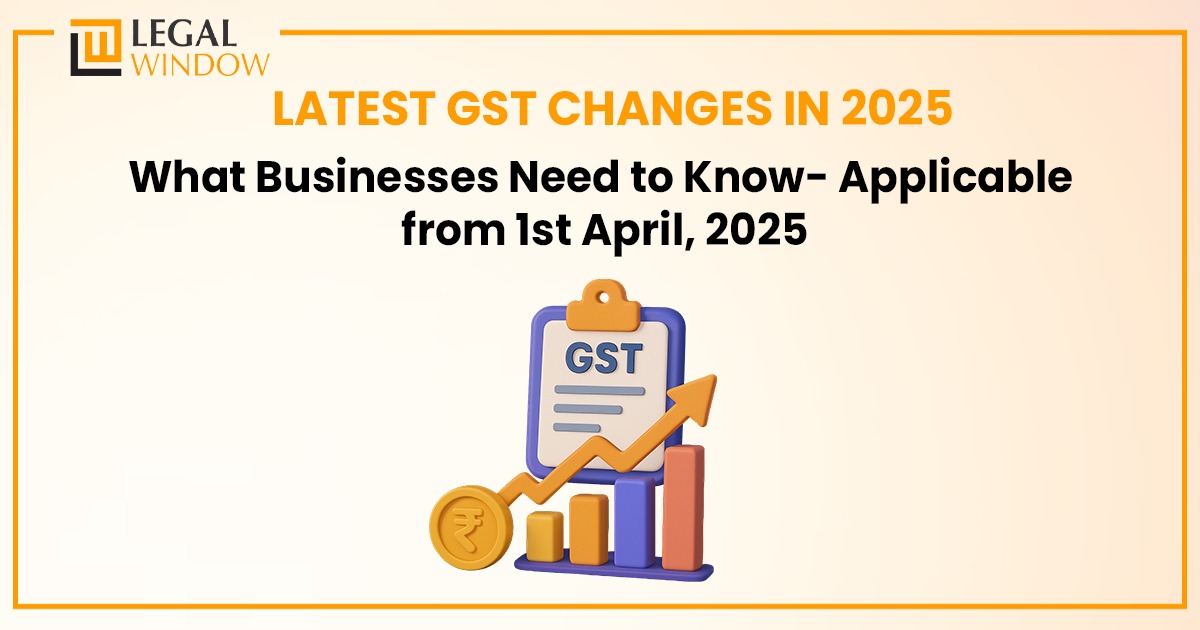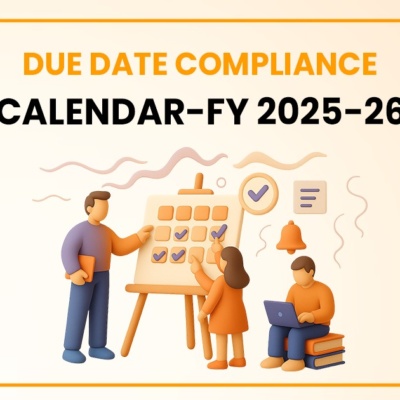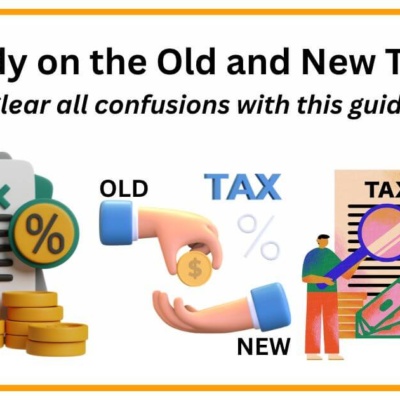Latest GST Changes in 2025: What Businesses Need to Know- Applicable from 1st April, 2025
- April 14, 2025
- GST
Latest GST Changes in 2025: What Businesses Need to Know- Applicable from 1st April, 2025
As we head into 2025, India’s Goods and Services Tax (GST) system is experiencing a set of major changes that need to be accommodated by business in order for them to stay compliant. The changes will make the whole GST system more efficient as a whole, decrease fraud, and bring about more transparency. Below is what you should know about the newest GST changes in 2025 and how the changes will affect your business.
- Mandatory Multi-Factor Authentication (MFA) for GST Portal Login
With effect from April 1, 2025, all taxpayers shall mandatorily use Multi-Factor Authentication (MFA) for logging in to the GST portal. Hitherto, MFA was compulsorily mandatory for those taxpayers only who had an Aggregate Annual Turnover (AATO) of over Rs 100 crore. With the new regime, the mandatory requirement has been imposed on all taxpayers irrespective of turnover. The objective is to give an added layer of security and safeguard sensitive financial information. Updating registered mobile numbers and making IT systems MFA compliance is mandatory for all businesses.
- Limitation on generation of E-Way Bill
Limitation on generation of E-Way Bills (EWBs) for transactions on the basis of documents that are more than 180 days old is one of the most important GST updates of 2025. It will be impossible from January 1, 2025, for companies to create an EWB if the supporting bill or invoice of supply is older than 180 days. This has been achieved in such a manner that goods movement under lapsed or expired documents is discouraged so that goods are transported on time and within the allowed limits.
- E-Way Bill Extension Duration Limit
Apart from the above, there will also be a limitation on the extension validity period of EWBs. The maximum permissible extension period will now be 360 days from the initial date of creation of the EWB. The EWB will be invalid and void after this time, and companies will have to generate a new EWB for the same products if necessary. This should avoid delays in goods movement and ease logistics processes.
- Compulsory registration of Input Service Distributors (ISD)
In an effort to streamline the process of GST, companies that purchase input services on behalf of different units or branches will have to register as Input Service Distributors (ISD). The new rule will come into effect from April 1, 2025, and will help ensure that input tax credit (ITC) reaches every business unit. Companies that do not register under ISD will have to pay penalties, including withholding of ITC.
- Reporting of E-Invoice Within 30 Days
Entities with AATO of Rs 10 crore and more shall now be mandated to report e-invoices on the Invoice Registration Portal (IRP) within 30 days of the invoice generation date. This is a fresh addition under India 2024 GST reforms and shall be operational from April 1, 2025. Earlier, e-invoicing was mandatory for entities whose turnover was high, i.e., Rs100 crore and more. The reason behind this change is to simplify the invoicing process and get the companies implement GST rules in real-time.
- Impact of GST Amendments on Small Businesses
The 2025 GST innovations can prove to be difficult for small businesses, particularly the mandatory ISD registration, MFA, and 30-day e-invoice submission. These steps can put an extra burden on small businesses that may not be in a position to cope with the new regulations. Small businesses can utilize GST software and online tools to assist them in fulfilling the requirements, minimize manual errors, and keep things easy. Government advice and advisory services will also help to neutralize its effect.
- Changes in GST Rate
Though GST rates change in 2025, business companies must prepare themselves for fresh changes in rates which can affect their pricing strategies. The government is going to streamline compliance and bring down the existing rate structure of GST by decreasing and rationalizing it. Companies must remain watchful with the Latest GST changes 2025 and adjust their pricing in order to be profitable and according to new rate structures.
- New GST Compliance Requirements
New GST compliance requirements 2025 include mandatory registration under ISD, MFA for portal access, and e-invoice submission. These will add to the administrative expense for businesses but are meant for easier operation, fewer errors, and tax evasion check. Businesses will have to incur on appropriate employee training and possibly on fortifying their internal systems and processes to comply with these requirements.
- GST Invoice Rules Updates
Businesses will have to operate under more stringent guidelines for issuing and maintaining invoices under the new GST rules in 2025. These include e-invoice filing compulsorily within 30 days and adherence to new GST invoice rules 2025. Businesses will also have to perform electronic signatures and precise verification on all bills issued. Going for computerized billing software upgrade will make firms more alert to these new norms and decrease instances of non-adherence.
- GST Return Filing Reforms
GST return filing updates in 2025 include format and deadline changes for filing. Companies have to familiarize themselves with the new return filing process because it shall comply with the new GST compliance regulations. The new system is expected to speed up and enhance the accuracy of return filings by eliminating delays and errors. Companies will also be required to ensure that they are filing all the information required under the new reporting requirements.
Conclusion:
The recent GST updates for businesses in 2025 are a step towards the government’s initiative to ease the GST regime and make it compliant. Right from the implementation of MFA to e-way bill generation changes under GST, distribution of input tax credit, and filing of e-invoices, businesses need to get ready for such developments in order to prevent penalties and facilitate smooth processes. Familiarity with the new GST compliance guidelines for 2025 and setting proper arrangements accordingly will enable businesses to cope with this changing tax landscape and keep their operations free of hassles. Proper planning and technological execution will be required in order to remain compliant and minimize the effects of such upgrades on day-to-day operations.
LegalWindow.in is a professional technology driven platform of multidisciplined experts like CA/CS/Lawyers spanning with an aim to provide concrete solution to individuals, start-ups and other business organisation by maximising their growth at an affordable cost. Our team offers expertise solutions in various fields that include Corporate Laws, Direct Taxations, GST Matters, IP Registrations and other Legal Affairs.
Categories
- Agreement Drafting (23)
- Annual Compliance (12)
- Change in Business (37)
- Company Law (150)
- Compliance (90)
- Digital Banking (3)
- Drug License (3)
- FEMA (17)
- Finance Company (42)
- Foreign Taxation (9)
- FSSAI License/Registration (14)
- GST (124)
- Hallmark Registration (1)
- Income Tax (209)
- Latest News (34)
- Miscellaneous (170)
- NBFC Registration (8)
- NGO (18)
- SEBI Registration (6)
- Section 8 Company (10)
- Start and manage a business (27)
- Startup/ Registration (134)
- Trademark Registration/IPR (48)
Recent Posts
About us
LegalWindow.in is a professional technology driven platform of multidisciplined experts like CA/CS/Lawyers spanning with an aim to provide concrete solution to individuals, start-ups and other business organisation by maximising their growth at an affordable cost.








